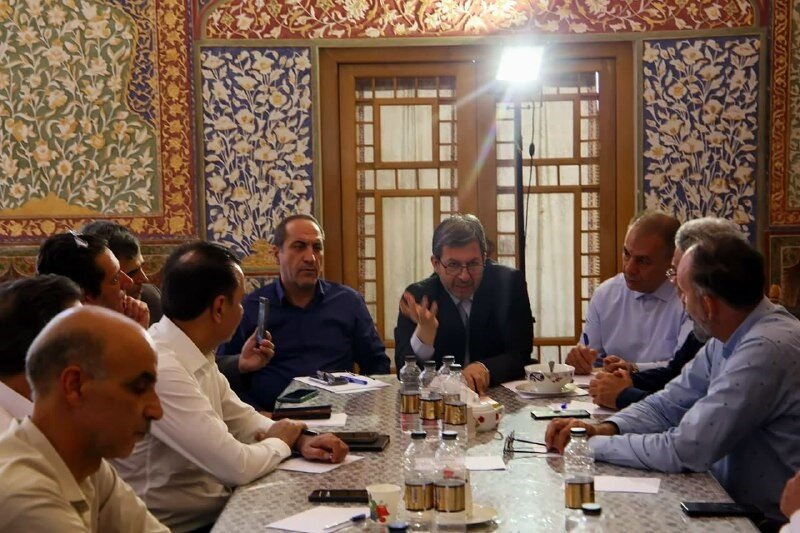War threat should turn into opportunity for tourism infrastructure: official

TEHRAN--Tourism activists should not be passive during the war crisis, Isfahan’s Governor-General Mehdi Jamalinejad has said.
Also, the ground can be prepared for an economic leap, he added.
Addressing the gathering of members of presiding board of travel agencies with focus on tourism problems in critical and war conditions, he said in a situation that security and economic threats have driven many cities toward recession, Isfahan as the Iran’s tourism hub should turn the threats and challenges into new opportunities and take big steps for revival of tourism and sustainable economy.
Jamalinejad urged managers and activists of Isfahan’s tourism industry to draw creative plans for attracting domestic and foreign tourists in critical conditions with cooperation of travel agencies.
Also, travel and tourism agencies of Isfahan should think about creative ideas and plan secure trip packages with focus on “Peace and Security”, he added.
Pointing that travel agencies should not be closed, he called introduction of alternative routes and lesser-known destinations across the province for reducing the worries as the other alternatives for activities during critical and war time.
He called planning virtual tours and online concerts as the other measures, adding that using artificial intelligence (AI) technology for planning virtual tours of Isfahan’s historical attractions can be attractive for global audience.
Elsewhere in his remarks, he pointed to revival of International Handicrafts Fair in other countries, adding that Isfahan Handicrafts Exhibition can hold exhibition in combined form of in person and online) so that local artists can present their products to the global markets.
He called turning threat into opportunity through launching campaigns with focus on “Travel for Peace” as the other alternatives. Travel agencies with cooperation of nongovernmental organizations can launch campaigns for promoting sustainable tourism and cultural dialogue, he added.
Jamalinejad called supporting the local businesses as the other activities in war time, adding that promoting cooperation with ecotourism sites and traditional restaurants for rendering pure services to the tourists can generate income.
He pointed to the role of the youth and the elites in reforming the tourism industry. Given the emphasis of officials on using the potentials of the elites, many startups active in technology and AI sectors have entered the tourism field to make Isfahan a secure and attractive destination, he mentioned.
Isfahan has proved that it can prevent recession even in the hardest situation, he said, urging the tourism activists to turn the current situation into a symbol of dynamism and hope in Iran’s tourism industry.
Once a crossroads of international trade and diplomacy, Isfahan remains one of Iran’s most prominent tourist destinations. It is renowned for its breathtaking Islamic architecture, including stunning mosques, palaces, and bazaars. Visitors can explore Persian gardens and walk along the city’s tree-lined boulevards, soaking in the beauty and history at every turn. The city’s architectural marvels, such as Naghsh-e Jahan Square—one of the largest squares in the world—make it a jewel of town planning.
Isfahan is known as “Nesf-e-Jahan,” or “half the world,” symbolizing its historic significance. The Zayandeh-Rood River, often called the city’s “life-giving river,” adds to the city’s natural beauty, enhancing its allure for tourists.
KD
Leave a Comment